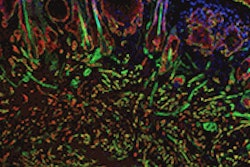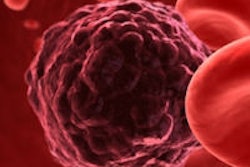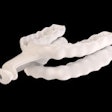The increased activation of a key oncogene in head and neck cancers (HNCs) could be the result of mutation and dysfunction of regulatory proteins that are supposed to keep the gene, which has the potential to be malignant, in check, according to a new study in the Proceedings of the National Academy of Sciences (January 6, 2014).
The findings by researchers at the University of Pittsburgh School of Medicine may help in the development of drugs to treat head and neck tumors, as well as other cancers.
Researchers have found activation and increased signaling of a protein known as signal transducer and activator of transcription 3 (STAT3) in different kinds of cancers, and it is associated with poor prognosis. In adult tissues, STAT3 triggers the production of other proteins that promote the growth and survival of cancer cells.
Since gene aberrations in STAT3 rarely occurred in HNC, the researchers searched for mutations in other proteins associated with increased activity of STAT3. To be activated, STAT3 must be phosphorylated, meaning a phosphate group is added to it. Many cancer drugs work by inhibiting enzymes called kinases that encourage this process. The researchers focused instead on the other side of the biochemical equation in which enzymes called phosphatases deactivate proteins by removing phosphates.
They were surprised to find head and neck tumors with elevated STAT3 that were associated with mutations in the PTPR family of phosphatases. When they reproduced the mutations in computational and lab models, they saw that they led to dysfunction of the enzymes.
Since phosphatases do not work properly, phosphate groups don't get removed from STAT3 appropriately, and it stays activated. The mutations essentially stop the "brakes" that might otherwise slow or even stop cancer development, the researchers found.
The findings show that it may be possible to screen tumors for mutations in the PTPR group and treat them with drugs that inhibit STAT3's activity.
The National Institutes of Health funded the study.



















